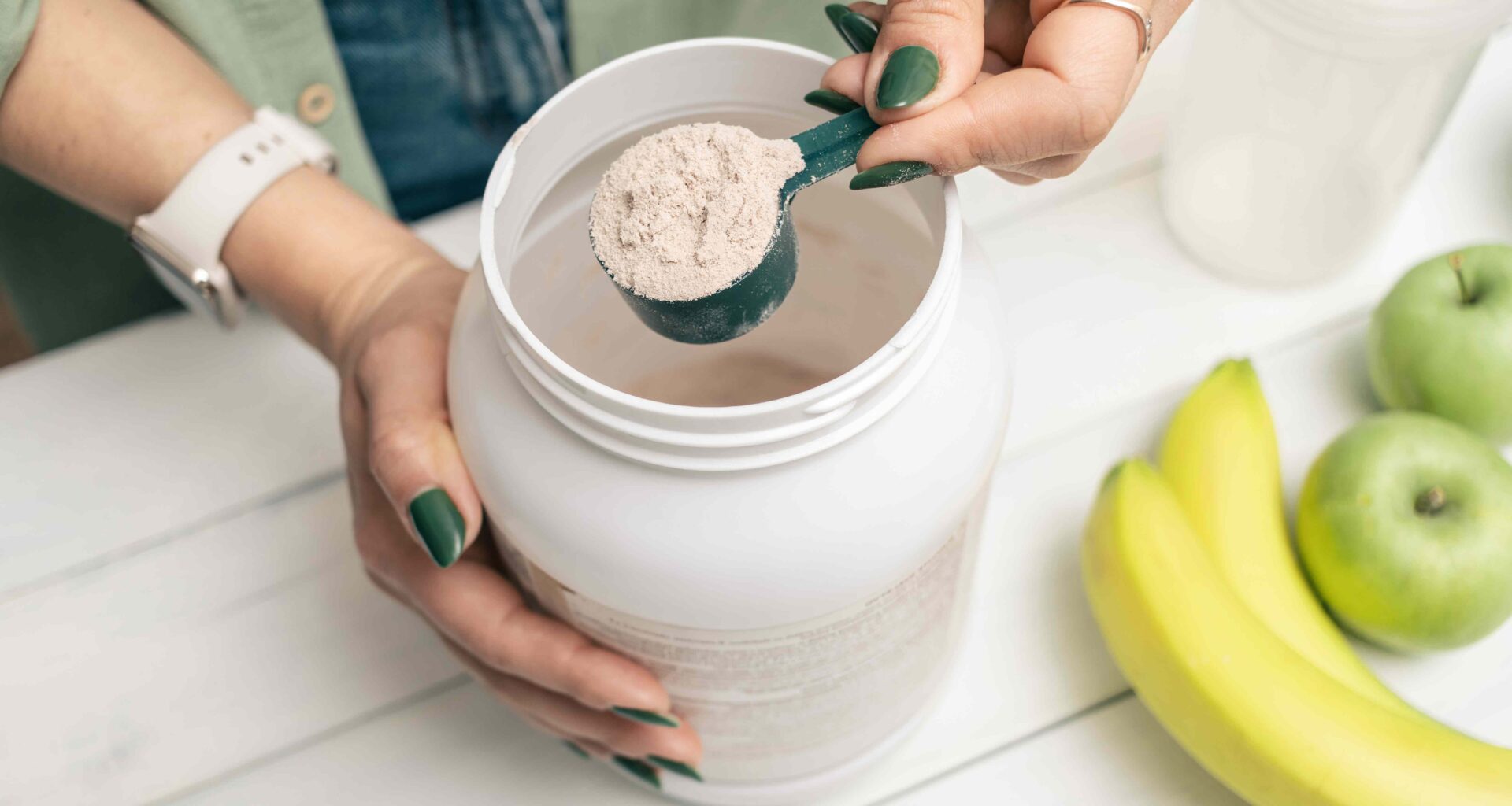For many people looking to optimize their health, protein powders and nutritional supplements are helpful tools, but the combination isn’t always beneficial. Some pairings can cause digestive upset or make the nutrients less effective.
For most people, combining creatine and protein powder is perfectly safe and may even enhance nutrient uptake and performance benefits.
But more isn’t necessarily better. “Once muscle stores are saturated, the body simply excretes the excess,” said Lara Zakaria, PharmD, CNS, an integrative pharmacist and nutritionist specializing in functional medicine and personalized nutrition. “That’s why most studies use that range consistently and safely.”
Combining more than recommended (3 to 5 grams daily) with protein could cause dehydration, gastrointestinal upset, and even kidney strain in some people. Overall, “Creatine itself is safe and well-studied,” said Alex Larson, RDN, a registered sports dietitian and founder of Alex Larson Nutrition. “Just stick to the effective dosing.”
Many pre-workout supplements contain caffeine, which can cause your heart rate and blood pressure to spike. Certain protein powders and shakes also contain caffeine, which can double your dose.
When you combine lots of caffeine with a heavy protein shake, it can delay gastric emptying—the process where food exits the stomach—and cause nausea, cramping, or reflux.
This isn’t necessarily harmful, but it can be uncomfortable. “It’s less about [supplement] interaction and more about timing and tolerance,” said Zakaria. “Protein shakes digest best when the body isn’t in full sympathetic fight-or-flight mode from caffeine.”
Amino acid blends, like BCAAs (branched-chain amino acids), are essential nutrients that help build muscle. Most protein powders also naturally contain amino acids, so you don’t necessarily need to add more to the mix.
“If your protein powder already delivers about 20 to 30 grams per serving, [with BCAAs], there’s no meaningful advantage to stacking [more] BCAAs on top,” said Zakaria, who added that too many additional amino acids could potentially lower tryptophan (an essential amino acid) availability and affect your mood.
Different protein powders often contain varying amounts of calcium, so you may want to take iron or zinc supplements separately—calcium can compete with iron for absorption, said Larson.
However, having a protein shake around the same time you take your iron supplement isn’t necessarily harmful, said Zakaria, and the delayed effect is clinically irrelevant for most folks who don’t have an existing iron deficiency.
Herbal supplements like ginseng and green tea extract often contain hidden stimulants. When those stimulants are combined with caffeine from other sources, like some protein powders or pre-workout supplements, they can elevate your heart rate and put more stress on your digestive system, said Larson.
Additionally, excess caffeine may make it hard to fall asleep and get the adequate rest and recovery your body needs after a hard workout—which, like protein, is crucial for muscle growth.
There are still safe and effective ways to maintain your supplement routines while also taking protein powder—and consistency is more important than exact timing.
Supplements like omega-3s, vitamin D, probiotics, carbohydrate powders, electrolytes, and green powders are generally safe to consume with your protein shake and won’t interfere with absorption, said Larson.
For supplements containing caffeine (pre-workout or herbal supplements) or creatine, be sure to read the label and take the recommended dosage, while spacing them out so you don’t overload your digestive system.
Pay special attention to spacing out iron supplements—instead of combining with your morning protein shake, take them on an empty stomach with vitamin C, then wait two hours before consuming anything that could compete with absorption (calcium, zinc, coffee, or tea).
It’s also worth noting that protein powders and supplements aren’t regulated in the same way medications are. You can feel more confident in your choices with products that have been third-party tested for purity and safety by programs like NSF’s Certified for Sport or LGC’s Informed Choice. And before you start any new supplements or protein powders, check with your doctor, since those two things can also interact with any medications you may be taking.

